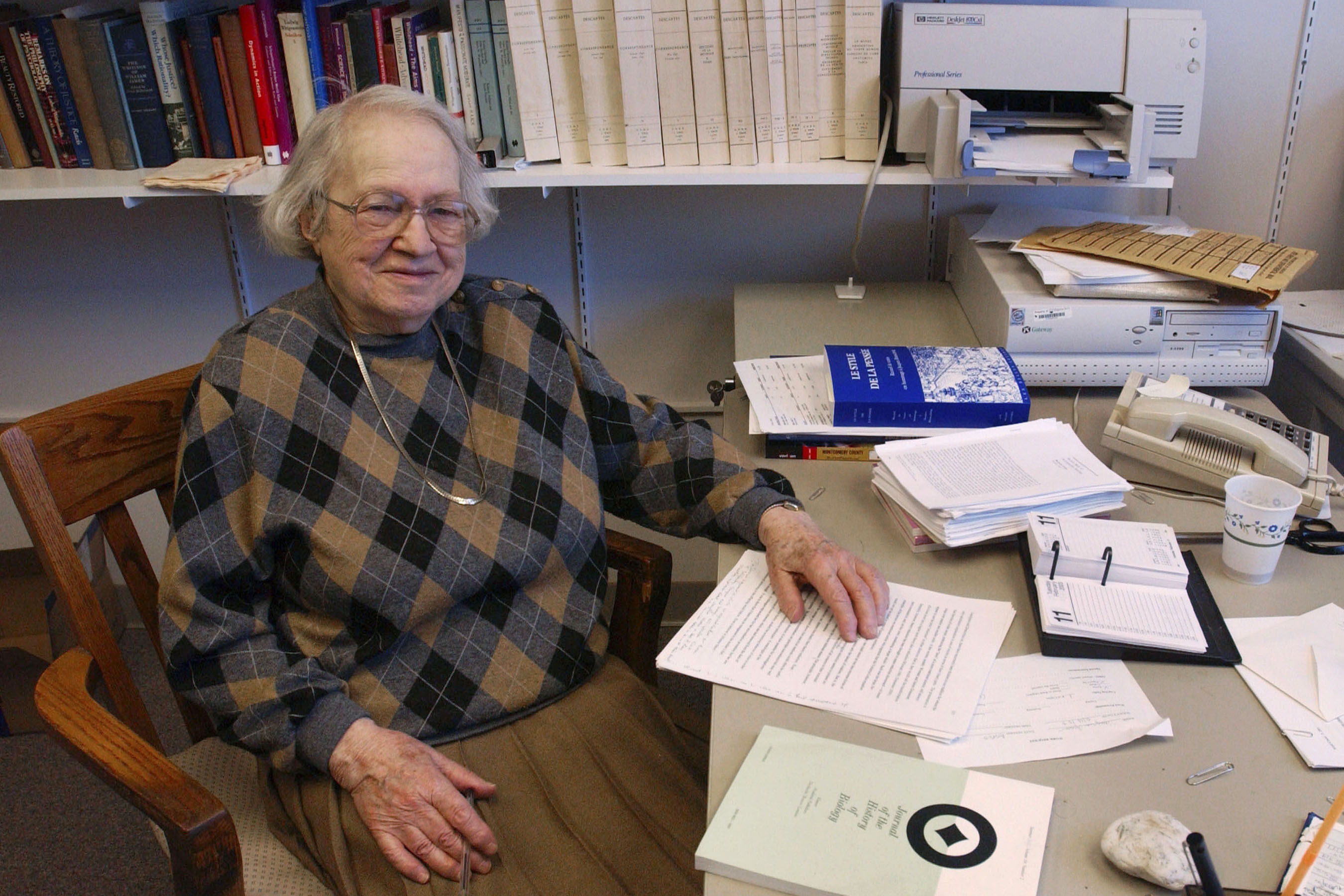In Memoriam: Marjorie Grene, Honorary University Distinguished Professor of Philosophy and professor emerita

Marjorie Grene, Honorary University Distinguished Professor of Philosophy and professor emerita at Virginia Tech, passed away March 16 at age 98 after a brief illness.
Grene became the first woman to join the ranks of such great philosophers as Albert Einstein, Jean-Paul Sartre, and John Dewey with the publication of The Philosophy of Marjorie Grene, a volume in the Library of Living Philosophers, in 2002. Inclusion in the series is one of the highest honors a professional philosopher can receive.
Grene was interested in philosophy when she started college in 1927 at Wellesley, but she majored in zoology and minored in English. She went to Germany as an exchange student and attended lectures of Heidegger and Jaspers. She returned home in 1933, the year Hitler came to power, and earned a Ph.D. at Radcliffe. She then began teaching the history of philosophy at the University of Chicago.
Grene continued to publish, but her main occupations were raising her family and helping to run a farm, first in the United States, then in Ireland. She held temporary positions at the University of Manchester (1957-58) and then at the University of Leeds (1958-60), before becoming a Lecturer in Philosophy at Queens University, Belfast (1960-65). She returned to the United States, first as a faculty member, then as Chair of the Department of Philosophy at the University of California, Davis (UC Davis), which she built into a major department, with strengths in history of philosophy and philosophy of science.
After her mandatory retirement from the UC Davis, Grene held visiting positions in twelve colleges and universities plus a research fellowship at the American Museum of Natural History. She earned numerous awards, including fellowship in the prestigious American Academy of Arts and Sciences and the American Association for the Advancement of Science. She published 12 books, including those on Heidegger, Aristotle, Sartre, and Descartes.
In 1988, when her daughter Ruth moved from Cornell University to Virginia Tech, Grene also moved to Blacksburg, Va., where she was named as an Honorary University Distinguished Professor and adjunct professor of philosophy and science studies at Virginia Tech. Grene played a significant role in both of these units for many years, participating in colloquia, tutoring students, and collaborating with various colleagues.
She remained intellectually active until about 2005, publishing her last major book, The Philosophy of Biology: An Episodic History, written with David Depew, with Cambridge University Press in 2004. She served as the president of the Pacific Division of the American Philosophical Association from 1971 to 1972; the Phi Beta Kappa Romanell Lecturer in 1991-92, delivering the lectures at the UC Davis; was awarded honorary degrees by Tulane University and the University of Dijon; and received many additional honors.
Several Festschrifts have been devoted to her work including volume 29 of the Library of Living Philosophers, the first to be devoted to the work of a woman (L.E. Hahn. and R.E. Auxier (eds.), The Philosophy of Marjorie Grene, Chicago and La Salle, IL,: Open Court, 2002), and J. Gayon and R.M. Burian (eds.), 2007, Conceptions de la Science: Hier, Aujourd'hui, Demain. Hommage à Marjorie Grene, Brussels: Ousia.
Marjorie Grene is survived by her daughter Ruth, who is on the Virginia Tech faculty in the Department of Plant Pathology, Physiology, and Weed Science; her son Nicholas, who is a Professor of English Literature in the School of English, Trinity College, Dublin, Ireland,; his wife Eleanor; six grandchildren: Sophia, Hannah, Jessica, Clement, Nick and Lucy Grene; and one great-granddaughter, Nazyia Terry.
To allow her Irish family to participate, a memorial service in Blacksburg is tentatively scheduled for May 3. A detailed memorial notice, a curriculum vitae, a 2003 interview, and a 2005 interview can be found on the Department of Philosophy website. Further details will be posted online as they are available.
Professor Emeritus Richard Burian contributed to this story.




